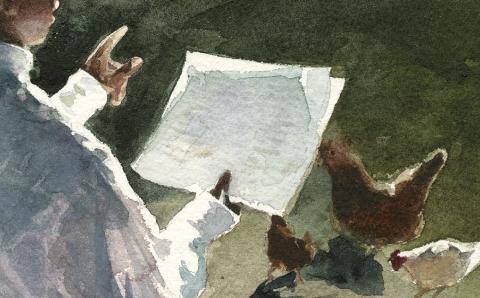Q What are God’s views on slavery? And why is someone not punished for beating a slave if the slave can recover from the injuries (Ex. 21:20-21)? Why was this OK back then?
A While teaching about divorce, Jesus suggested that God sometimes allowed less than ideal scenarios because of his graciousness to human sinfulness (Matt. 19:8-9). So even though God intended otherwise, Moses permitted divorce for certain conditions. Similarly, even though everyone is made in God’s image, Moses allowed for slavery as part of the ancient economy and culture.
In the ancient Near East, people often sold themselves into slave labor to work off their debts. This differed greatly from more recent forms of slavery based on race and kidnapping. Israelite slave laws also tended to be more humane than those of other ancient civilizations. For instance, no one could be kept as a slave for more than six years without their permission (Ex. 21:2-6).
The verses you cited demonstrate both the accommodation to ancient culture and the more humane treatment in distinction from that culture. In contrast to other ancient cultures, the Mosaic law assured punishment for beating slaves to death. This acted as a deterrent to such extreme abuse. However, there was no penalty if the slave recovered because the cultural assumption was that owners had the right to discipline their slaves.
Today we should not tolerate slavery, which was an accommodation to sinful culture, but uphold the dignity of every human being as God’s imagebearer. Jesus taught us to love all our neighbors as ourselves.
About the Author
Shiao Chong is editor-in-chief of The Banner. He attends Fellowship Christian Reformed Church in Toronto, Ont.
Shiao Chong es el redactor jefe de The Banner. El asiste a Iglesia Comunidad Cristiana Reformada en Toronto, Ont.
시아오 총은 더 배너 (The Banner)의 편집장이다. 온타리오 주 토론토의 펠로우쉽 CRC에 출석한다.
You can follow him @shiaochong (Twitter) and @3dchristianity (Facebook).









